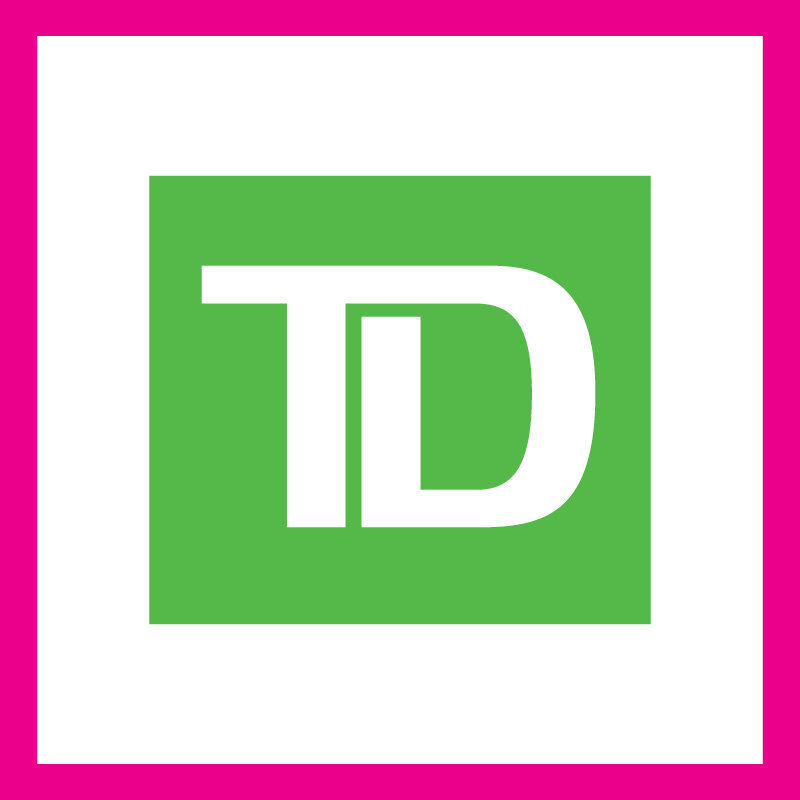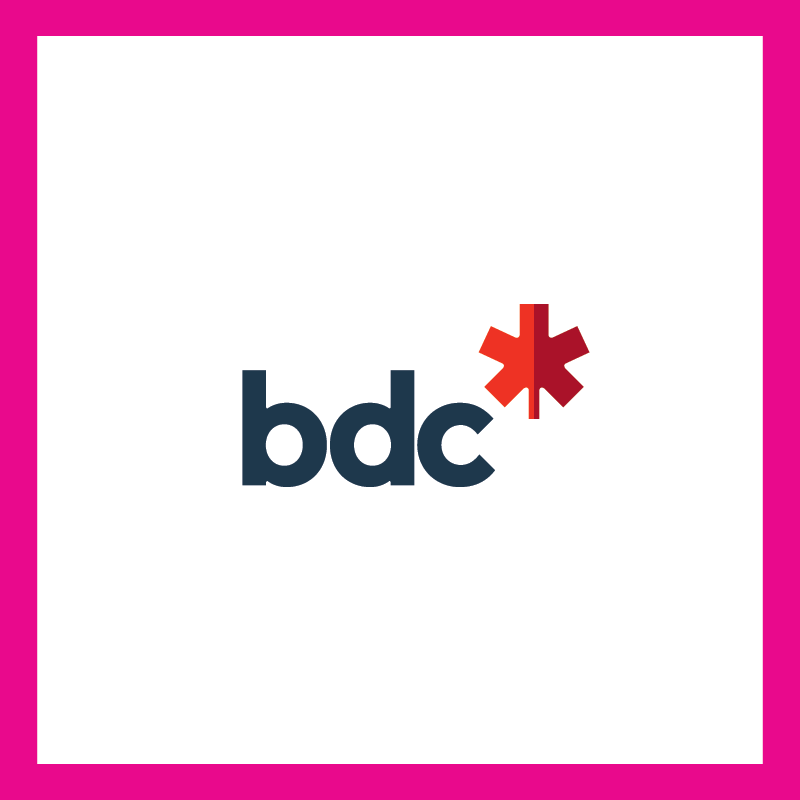Spotlight: Psychologist Jeremy Luk
Asian Representation in the LGBTQ+ Community with Psychologist Jeremy Luk
As Asian Heritage Month comes to an end, we connected with Jeremy Luk, registered psychologist, founder of Alpine Psychology, and self-proclaimed lover of great food, to talk about why representation in both the Asian and LGBTQ+ communities is of the utmost importance.
Pride In Business Community Spotlight, in partnership with TD.
By Jarom Moriyama-Bondar
Jeremy Luk
Alpine Psychology
How long have you been working as a psychologist?
Jeremy Luk: I became a registered Psychologist in 2015 and then became a registered Psychologist in 2016, so I've been practicing for about five years now. It just really flies by.
What inspired you to get into business with this type of work?
JL: I've always been interested in working with people and just fascinated by how there are so many ways people can think, feel, and behave in different situations and relationships with others. I guess you can say it's just professional nosiness that led me into this field. I also love the fact that I always feel like I get to learn something new from each person I work with. It's always a cool moment to see people make changes for themselves and there is a sense of pride for them and happiness that comes with being a part of that.
How long have you lived in Calgary?
JL: I was born and raised right here in the city of Calgary, which is rare, I know! Growing up I always thought that I would want to move to a bigger, more inclusive city, but as time went on, Calgary seemed to grow and mature right along, too. I also found myself getting drawn to the sense of local community. I became more involved with community efforts and found myself in the non-profit sectors volunteering with the Distress Centre and Leftovers (both great organizations that do necessary work for others!). Before, my love of food had me helping out with Moonlight Market, a night market set up over the last three years that highlights local vendors and artists. I also took my first steps getting involved with the LGBTQ+ community through joining CASA's softball league in 2018 and 2019 and was surprised that Calgary even had anything like that available. Winning back-to-back seasons felt damn good, too. All One YYC and Hush all the way!
The more I get to know my own city, the more that I am continuously surprised by how much it evolves and has to offer.
Can you tell us a little bit about your career background?
JL: As far as my background goes, I finished my undergraduate degree at the University of Calgary, which included a semester abroad at Hong Kong University — a choice which was really all about the food, to be honest — before completing my Master’s program at the University of Lethbridge in 2015. I started my internship and residency program at the Calgary Counselling Centre, which was a great experience. I was able to work with a diverse population that would be able to access mental health supports offered on a sliding fee scale, meaning that finances would not be a barrier to others taking care of their mental health. After the program there, I worked with the Family Psychology Place for a year while becoming a Registered Psychologist and then worked with the Calgary Catholic School District for the last three and a half years before starting Alpine Psychology in September 2020.
What’s your impression of the LGBTQ+ business community in the city?
JL: To be honest, I wasn't very familiar with even the presence of the LGBTQ+ business community in the city until recent years. After joining CASA's softball community, I started to become more familiar with Calgary's LGBTQ+ community and was exposed to more businesses and organizations that were either LGBTQ+ owned or allied. A big part of getting to recognize the community has been through Pride in Business and the different events and promotions that they do for Calgary! Overall, my impression is that while it may make up only a small proportion of the city, it is a strong group that supports each other when given the opportunity. Attending the different events during Pride, or even the ones that are held through the rest of the year in support of businesses or non-profits that are LGBTQ+ oriented, I always leave feeling a sense of hope and excitement in seeing how many people are there and experiencing how much we try to help one another. I can only see it continuing to grow in the years to come and am proud to be a part of it!
How do you feel Alpine can contribute/support the LGBTQ+ community?
JL: Working in the counselling field, I am already mindful to create an inclusive environment where no one feels judged or criticized about who they are, what they do, or anything else that may be going on in their lives. I also think that representation has always and continues to matter.
There is so much power in being able to see yourself in other members of the community, whether it is through relating yourself through race, gender, sexuality, or other characteristics. At the end of the day, it is important for people to have pride in not only what they do, but who they are. Being a visible minority as well as being a part of the LGBTQ+ community, I hope that I can challenge what others expect the face and practice of therapy to look like and encourage other people who may be able to relate to recognize that we exist and that we can become whatever we want to be.
My practice also does not discriminate against or exclude any client on the basis of age, race, gender, sexuality, religious beliefs, or any other factors alone. Everyone is welcome and everyone has a right to take care of their mental health!
What does it mean for you to be a part of Pride in Business's Spotlight for Asian Heritage Month?
JL: Over the last few months, I've been struggling to process and sort out my feelings around the increased number of attacks on visible minorities and people of colour. There was a part of me that felt angry that these attacks were taking place, another part that felt loss for the victims and survivors, and another part that touched on feelings that I had either tucked away or didn't realize until I saw people who looked like me and my family and friends be treated like their lives were worthless just because of how they looked. I had talked to [Pride In Business co-founder] Jarom [Moriyama-Bondar] about being a part of Spotlight in December and had kind of shied away from the idea and joked again about doing a "dim sum spotlight" for Asian Heritage Month with several gaysians being featured. Mostly because I didn't feel comfortable with that much attention on me, but I realized that it wasn't so much about getting attention as it was about being proud of who I am enough to represent the communities that I am a part of. We talk about representation in the LGBTQ+ community and I think it's important to represent the intersectionality of being a gay Asian male too, especially when we still face discrimination even within a community that has known what it feels like to be considered "less than".
What do you do to make members of the LGBTQ+ community feel welcome?
JL: In my practice, I try to make members of the LGBTQ+ feel welcome through open dialogue and appropriate self-disclosure whenever possible. I find that it can be a helpful way to connect and to let others know that therapy can be a judgment-free space and a safe zone for them.
Jeremy Luk
Alpine Psychology
What advice would you have for anyone looking to get into the practice of Psychology and counselling?
JL: If you are interested in joining the field of psychology and counselling, I would recommend doing some research into what requirements might be needed for whatever position you may be looking to get into. Psychology can be such a broad and flexible field, which is another reason I love it, but it can be overwhelming in the number of choices when it comes to paths to pursue. One thing that I found helpful was volunteering with the Distress Centre before applying to my program. The volunteer placement at the Distress Centre is a time commitment, but it registered me with a great immersive experience in getting a sense of what counselling with others would be like.
Are you open to being approached from members of our community would who like to connect on topics we discussed in this article? How do you prefer to be contacted?
JL: Yes I am! Email or a phone call would work best! I can be reached either through hello@alpinepsycholpgy.com or 825-712-8329 and will try to get back to you as soon as possible! You can also check out my website (www.alpinepsychology.com) for more information.
What impact has COVID had on your work and business? How have you adjusted?
JL: COVID has certainly made face-to-face sessions a rarity, which can make a difference sometimes when it comes to connecting with another in therapy. I have found that virtual sessions make it easier for others to access mental health supports, as well. I have started offering online sessions and phone sessions, while in-person sessions are also available. I have consistent sanitization protocol in between sessions to ensure the safety of both my clients and myself. Meeting a client at their comfort level is what matters in these weird times.
For tips from Jeremy on managing mental health during the pandemic, click here.







